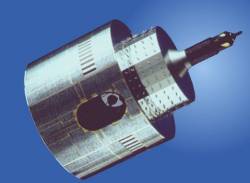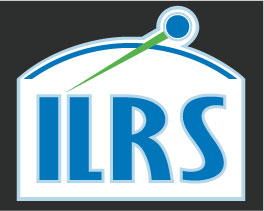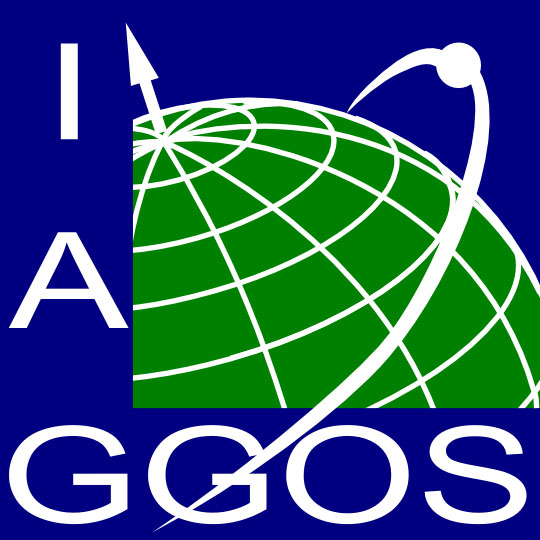
Meteosat P2/LASSO
Jump to: Mission Objectives, Mission Instrumentation, Mission Parameters, Additional Information
Mission Photos:

Courtesy of Eumetsat
Mission Objectives:
The first generation of Meteosats refers to a series of geostationary satellites that have provided images of the Earth for weather forcasting. The first satellite was launched in 1977 and the final and seventh satellite was launched in 1997. Meteosat 3 (also known as Metosat P2) was launched in 1981.
The LAser Synchronization from a Stationary Orbit (LASSO) experiment was designed for comparing time at two or more laser ranging sites. LASSO was onboard MeteoSat-P2 and validated the concept of optical time transfer. The experiment also demonstrated the interest and potential of this high precision method of time transfer. The first time transfer experiments between two stations in Europe (Grasse France and Graz Austria) were conducted in 1988. Trans-Atlantic time transfers were realized between the Grasse France and McDonald TX USA laser stations with a precision better than 100ps and an accuracy of 1.5ns in 1992.
Mission Instrumentation:
Seasat had the following instrumentation onboard:
- Visible imaging radiometer
- Meteorological data collection system
- SEM-2 electron spectrometer
- LASSO payload
- Retroreflector array
- Detection unit
- Time-tagging unit
- Ultra-stable oscillator
Mission Parameters:
| Sponsor: | ESA |
| Expected Life: | 3 years (stop functioning in 1995) |
| Primary Applications: | metrology |
| Primary SLR Applications: | time transfer |
| COSPAR ID: | 8805101 |
| SIC Code: | 8787 |
| Satellite Catalog (NORAD) Number: | 19215 |
| Launch Date: | June 15, 1988 |
| RRA Dimensions: | 340mm x 155mm x 35mm |
| RRA Shape: | panel |
| Reflectors: | 98 |
| Orbit: | geostationary |
| Inclination: | 7.50 degrees |
| Eccentricity: | |
| Perigee: | 36,723 km |
| Period: | 1,485.30 |
| Weight: | 696 kg |
Additional Information:
Web sites:
Publications:
- Banni, A., "Status of the Cagliari SLR station and the Lasso experiment", Proc. of the 7th International Workshop on Laser Ranging Instrumentation, Matera, Italy October 2-8, published by OCA/CERGA, Grasse, France, p. 85, 1989.
- Boudon, Y., Nobili. A., Metris, G., Veillet, C., Wytrzyszczak, I. and Barlier, F., "First results from laser ranging data to Meteosat-P2 interest for project COGEOS", Proc. of the 7th International Workshop on Laser Ranging Instrumentation, Matera, Italy October 2-8, published by OCA/CERGA, Grasse, France, p. 17, 1989.
- Cenci, A., Fermi, M. and Sciaretta, C., "Precise geostationary orbit determination using SLR: an application with Meteosat-P2", Proc. of the 7th International Workshop on Laser Ranging Instrumentation, Matera, Italy October 2-8, published by OCA/CERGA, Grasse, France, p. 9, 1989.
- Fridelance, P and C Veillet, Operation and data analysis in the LASSO experiment, 1995 Metrologia 32 27-33, doi:10.1088/0026-1394/32/1/003.
- Veillet, Ch., "LASSO the European phase Aug. 88-Sept.89", Proc. of the 7th International Workshop on Laser Ranging Instrumentation, Matera, Italy October 2-8, published by OCA/CERGA, Grasse, France, p. 27, 1989.




